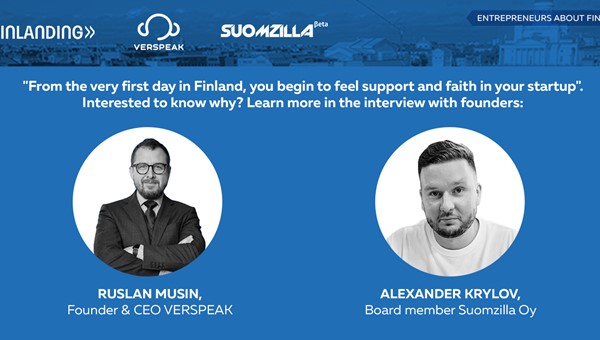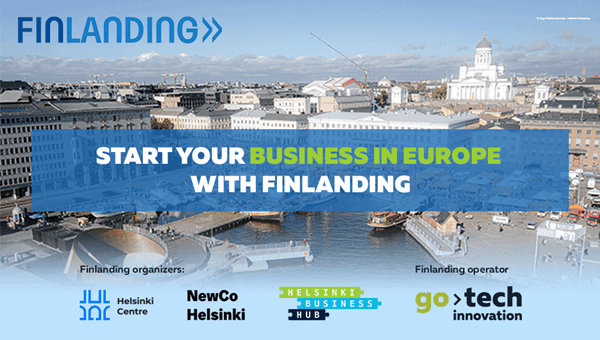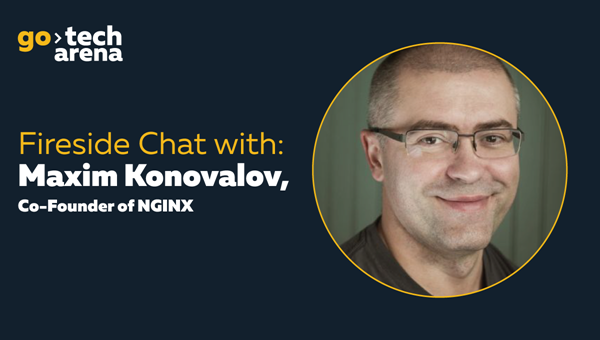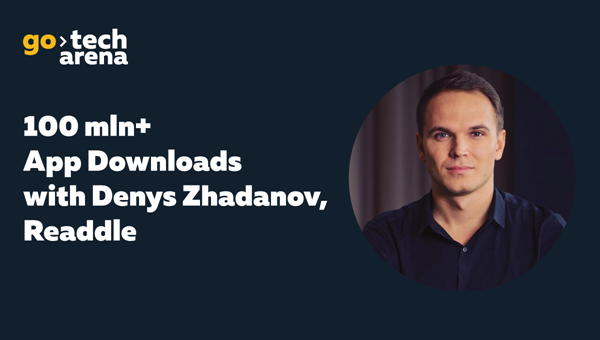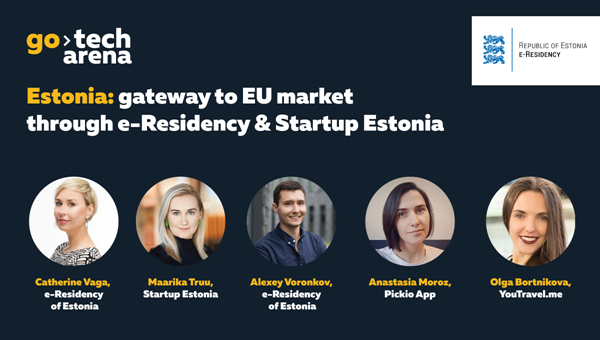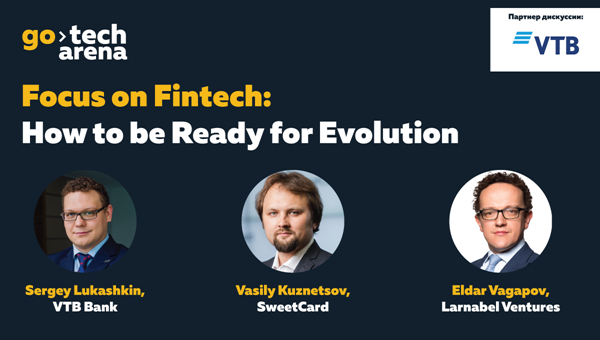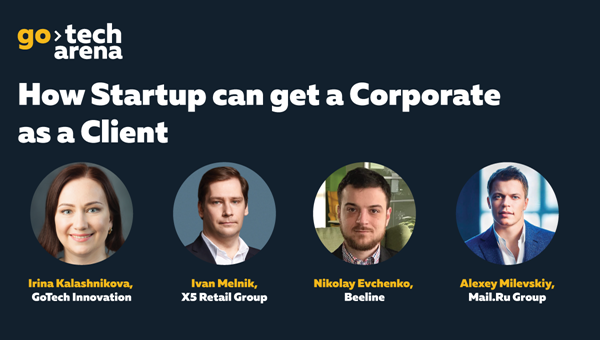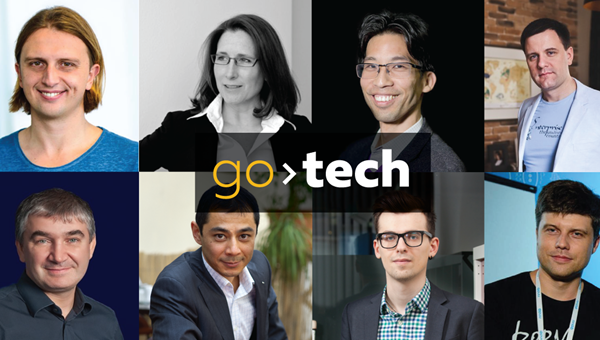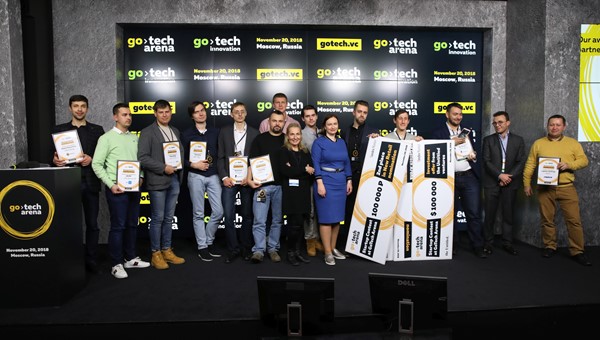12/1/2019
How Startup can a get a Corporate as a Client
Beeline, X5 Retail Group and Mail.Ru Group discussed on GoTech Arena Forum their principles and rules for cooperation with startups.
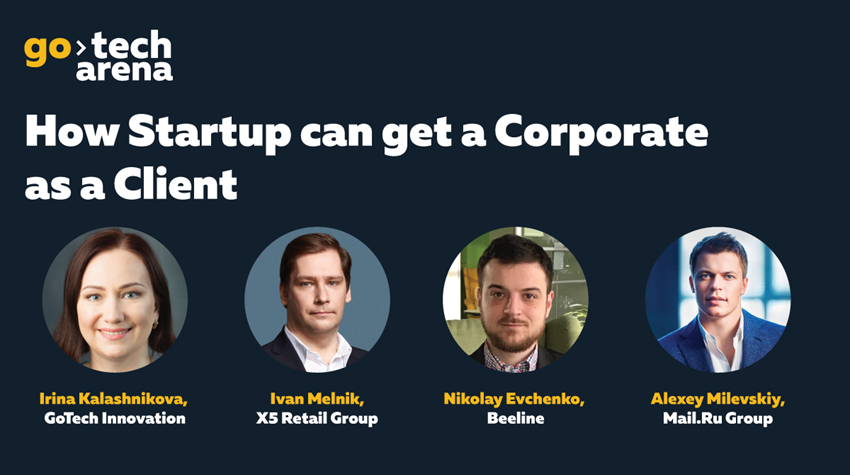
Irina Kalashnikova, Co-Founder and CEO at GoTech Innovation, Moderator: Why do you need startups? What goals do you have when you are looking for startups?
Nikolay Evchenko, Head of innovation planning and development Department at Beeline: Main purpose for working with startups is that we are a large and slow structure, and we are looking for something fresh and new. For example, right now we are looking for new non-telecom products. It won’t be used for our own business processes; it is something for our customers. We are looking for some new ways to make money, which we will be happy to share with the startups along with our vast retail chain, customer base, digital and physical channels of distribution and all other benefits that corporation can offer to a products going to market.
Ivan Melnik, Head of Innovations at X5 Retail Group: I started working at Perekrestok retail chain about 6 years ago and at that time those supermarkets were not performing very well. We were looking for different solutions, because we had a shortage of money and we needed, for example, to equip all of the stores with mobile workplaces for the store manager. We needed the solution, and the classic option with a desktop computer was not enough to cover all of the processes, so we found a company that made us those mobile workstations.
Than we started looking for solutions in energy saving, we needed to lower energy consumption by 10%, so we found a company that provided us a special solution for that task.
That is how we understood that startups can help us to optimize internal processes and save money, help us build digital communications with the customers, so we started our own innovation ecosystem, but it was officially born 2,5 years ago.
Alexey Milevskiy, Investment Director at Mail.Ru Group: According to statistics, more than half of big corporations want to launch new products by themselves, they don’t want to invest or acquire companies. But it takes from 1 to 2 years to develop a new product. So, by cooperating with startups we are buying time. by investing or buying startups. We are getting a new team, and the team of entrepreneurs is quite different from the team of company managers, they have a completely different motivational and entrepreneurial mindset.
Irina Kalashnikova: Your companies have been working with startups for years, how much startups are in your pipeline yearly and what is the portrait of this startup, startup of which stage, tech areas and geography are you interested in?
Nikolay Evchenko: Every year we are looking at about 1000 startups, just browsing their ideas. But only with a dozen of them we are going to the collaboration and implementation step. The main criteria of the startup is a specific product, not necessarily ready for launch, but startup should have a clear vision and a business plan on the product development and know its commercial value.
The second most important thing is founder’s background and their goals. Every case of startup collaboration is about co-creating something new. We are looking for startups, not for grown up companies with developed products and proven track record, because startups are very flexible, that helps to produce something new in together with our specialists.
About other criteria - we are focused mainly on Entertainment Mobile Tech, Home-based services, Advertising technologies, FinTech and so on. Geography doesn’t matter and language won’t be a barrier, we are open to any kind of cooperation.
Ivan Melnik: We reviewed a bit more than a thousand startups in two years, and around 600 we found relevant to our business and launched about 130 joint pilot projects. In the end, 15 of them were qualified for roll-out stage, integration into X5 Retail chain and real life business processes.
In terms of geography, I would say that Russian Market is already exhausted for us with retail startups, and we are going abroad, we started scouting campaigns in Israel and in Spain. It is really interesting, because life in Russia and in foreign countries is different, the markets are different, and the way people think is also different. I am sure that it will keep the pace of innovational evolution for us at least for the next two years.
Alexey Milevskiy: When we started our active M&A and investment phase 3 years ago, we were also reviewing about 1000 companies every year. But when we looked at the home market and got acquainted with the older funds and most successful entrepreneurs, we started to review much less companies, because we don’t have that much time and our partners help to review those companies, and mostly we looked at the companies that are introduced to us by other investment funds or by other entrepreneurs that we’ve met before. That is why we are squeezing the funnel of companies which are coming to us and trying to review only the companies that were checked by someone else first.
Irina Kalashnikova: How can founder apply to your pipeline? How can they find a door to your company?
Nikolay Evchenko: We have a division that specializes in working with startups. We don’t have a lack of applications, mostly we are focused on filtering and screening in silent mode by ourselves. We’re working in partnership with GoTech Contest by providing Nomination Beeline 5G Digital Experience. Also we are partnering with investment institutes that provide us with the pipeline. So my advice to startups won’t be on how to enter the pipeline, but how to proceed faster. First of all, you must not offer a product from the box, but a solution with a possibility to implement into Beeline processes. Second – you must know your business model. The main mistake startup makes is not knowing its price or what it wants from the cooperation.
Ivan Melnik: Our story of working with startups is not about innovation and hype; it is about doing efficient project for the sake of the business. We understood that while working with new companies you can’t apply the same scheme you are using when working with typical corporate projects, it doesn’t work with startups. We decided to create special division totally focused on working with small companies and with innovations. It consists of 3 parts. One is about scouting, in this area we are working closely with GoTech, so you can submit your startup through our joint selection. Than we have the evaluation, we estimate whether it is possible to apply the solution to our business, and if yes, than it moves on to the project part. At this stage project managers start to work with startups and ideas and try to help them to strive in our business and help them to bring the product.
I would agree that it is a rare case that startup company has a ready on product that fits in our business, usually it is only 50%. The other half is brought by people in the business who understands the customer. After that startup works with special development department, specialists with startup and small companies background, who understand how to best integrate technology into corporate processes. All in all, this system helped us to bring more pilot projects into real life this year, I would say the pace doubled at least.
Alexey Milevskiy: There is a natural selection among the startups. Obviously, we have an email on our website where you can send your presentation, but we have never received good enough presentation to review and to invest from this email. Secondly, all of our team use social network and you can approach any of us on Facebook. Obviously, we review it, but the most effective way is to find someone who can make an intro. If this person recommends your startup, he is kind of responsible for the introduction, meaning that he has reviewed the project himself and the startup has more credibility this way.
Irina Kalashnikova: Do you pay startups and what is the sum of investments? What are you looking for?
Alexey Milevskiy: As we are not an investment fund, we do not have a typical sum to invest. Historically, we had deals from several million rubles to hundreds of millions of dollars. When we look at the company, we understand that we have a choice, so we can either set up on our own, make a green field, or we can acquire the company, or we can invest in the company. From our perspective, if we acquire the company, then we save time, we consolidate it in our financials, and we get a market share immediately. Obviously, not all the companies can be acquired and it’s not always the best time to acquire the company. If they are too early and we acquire them, we demotivate the management, and they have not yet achieved results to get sufficient money, so they have to be motivated. When we invest, we try to invest a small sum and offer the company all the possible ways of interaction with our ecosystem. We are trying to offer some market expertise - in analytics, integration with our social networks and different other projects; trying to help with data, with getting best people in the team. Then, if we work together and understand that we are successful together, we can move to a further acquisition, and provide a potential exit to the company in the future.
Ivan Melnik: In 95% of startups we pay for them: for prototypes, pilots, roll-ups. There is a small group of companies that are able to invest and run for us, free of charge, prototype or pilot, but it’s a really rare case and it helps a bit to speed up things, but it’s not decisive for us, because anyway we have to invest our resources. We have a fast-decision track for financing the projects, but it doesn’t help a lot. I would say, the most cases that we ran were for money, and we paid the startups.
Nikolay Evchenko: We think that every labor must be paid, so we are ready to pay for our startups’ job, but it is a big mistake for startup to thinks that it is being paid because it is working in Beeline. In the case of cold production it is that he is paying for his own product with our money. We are ready to give some not large amounts, several millions of rubles, to startup, but we are waiting to get some outcome in business terms. Time and material and the price must be competitive. I can tell you a widespread case when a startup cannot name the price of its software, because there is no software, we understand the principle “Fake it till you make it”; then it offers a commercial proposal with time and material costs, and his software developer has a salary of one million rubles. It is not viewed as a common sense to us, so it’s better to know what you want to sell and name adequate price. In this case we are definitely ready to pay and support a startup with not only just cash, but with our infrastructure, with access to our data sources, and so on.
Additional questions
Who has the responsibility to sign the cheque for startups?
Nikolay Evchenko: I have the attorney to sign the cheque. I suggest that amount is good to have something good and it depends on value that we are going to gain. If the amount is not enough but the value is nice-looking for us, it can be anyone who signs: CEO or somebody.
Ivan Melnik: In my company I usually sign the cheques for the startups, for the contracts they do and for the work they deliver. If it is not more than a certain amount but more than a million, I sign.
And you know, in big corporations it’s usually a multi-layer of decisions that are processed in order to pay the company. But for us it’s usually a fast track. It’s always the case of whether the parties would like to move on. It’s usually done in one week. If somebody is working with papers for too long, etc., it can last for 2-3 months.
Alexey Milevskiy: We have done deals with USD 30 million in one month, so it just depends on how much we want this company and how much that company wants us. If both parties want this deal that much, they can move much faster and go through all the corporate approvals in a very fast way.
Is it good to have cases with competitors?
Ivan Melnik: 2 years ago we started working with companies that are working now with our competitors. We are okay with it. It’s about market, a pace of development, so if you are not open, then somebody will be ahead of you in a couple of years.
A tricky moment exists in those cases when, for example, you hired a startup and did one product with them and implemented it in your company; you have a role contract with them and they are able to get a lot of money with your company. At some point, they stop working hard, they are losing pace, they are failing with your contract, and are looking at your competitor. Here is a question: why are you doing this? Because somebody decided that they need a broader market. In this case you have to decide whether you want to go with this startup further or not.
Nikolay Evchenko: It all depends on the strategy of your own product. It’s your choice to take with whom to play, with everybody in a small amount or with one player but for long and large amount. For us, it might be both the restriction if your product provided something unique, which is a really rare case, or the advantage, in case you already know all the processes inside, the corporate problems, and you might be faster and cheaper for us if you have already gone through this way with some of our colleagues. It just depends on what you want and what is your product. The cases of exclusivity are extremely rare in our market, and the competition is so that if someone launches something new, in half of a year maximum there will be launched another three.
Ideal startup for cooperation
Nikolay Evchenko: Extremely financially modest genius who will do all work for us.
Alexey Milevskiy: It’s a strong entrepreneurial team operating in a big market with working and scalable unit economics.
Ivan Melnik: It’s always about people and about these bright minds who are doing this job for the startups, for the companies, for the corporations to whom they sell their products. It’s always about the character, the power, the speed of work and the speed of delivery that they guys from startups usually provide.
Check aftermovie out: https://youtu.be/NcBOogzDlag


